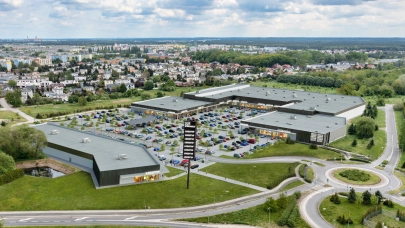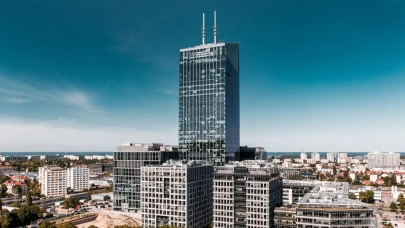
Europe’s commercial property market is enjoying a favourable operating environment supporting its credit quality but risks are increasing. Rising interest rates and slowing economic growth could dampen future investor demand, according to Moody’s latest report.
A solid macroeconomic outlook and strong property market fundamentals will support the credit quality of European commercial real estate (CRE) companies over the next 12-18 months. However, rising interest rates and slowing economic growth could dampen future investor demand. Possible threats to credit quality include falling asset values and more constrained debt markets.
"Strong occupier demand for European office, retail, logistics and other properties, and a limited supply of space has contributed to strong rental growth and declining vacancy rates," says Ramzi Kattan, Moody's Vice President and Senior Analyst. "Strong investor appetite for the asset class, encouraged by the search for yield in a low-interest rate environment, is leading to near record low yields for most sectors and is propping up asset values."
Moody's expects much lower European real estate asset value growth in 2019 and widespread single-digit percent asset value declines across the entire sector in 2020 and 2021.
Brexit uncertainty continues to dampen investment and demand in the UK commercial real estate sector, but Moody's expects a stable performance for prime office assets. The UK logistics property and private student housing accommodation sectors will outperform the wider commercial property market. The London office market is particularly vulnerable and the risk remains that financial institutions will move a larger part of their operations to the EU in the event of a no-deal Brexit.
Expectations for CEE
“We forecast economic growth in Central and Eastern Europe (CEE) of 3.7% in 2019, which is above the European average. This will support the credit quality of real estate companies which operate in that region. Strong wage growth, coupled with record-low unemployment will continue to drive private consumption, while EU funds and high capacity utilization levels will support investment,” says Ramzi Kattan, Moody's Vice President and Senior Analyst.
Companies which will benefit from this trend because of their high exposure to the CEE include CPI Property Group (Baa2 stable), Atrium European Real Estate Limited (Baa3 positive), NEPI Rockcastle Plc (Baa3 stable), Globalworth Real Estate Investments Limited (Ba1 positive), EPP N.V. (Ba1 stable) and RESIDOMO s.r.o. (Ba3 stable).
Other key points
- Gradual quantitative tightening will weigh on investor sentiment, with potential spillover effects for Europe’s commercial real estate sector.
- QE and rising interest rates may dampen asset values and constrain funding.
- Brexit uncertainty will continue to cast a shadow over the UK commercial real estate sector, however prime asset sales likely to remain stable while UK logistics property and private student housing accommodation sectors will outperform the wider commercial real estate market.
- Shopping centre landlords will continue to face a difficult operating environment as the proportion of retail sales made online continues to grow, and because of ongoing structural changes in retail.
- Companies which enter the next downturn with a high proportion of unencumbered assets will have more room to manoeuvre.



